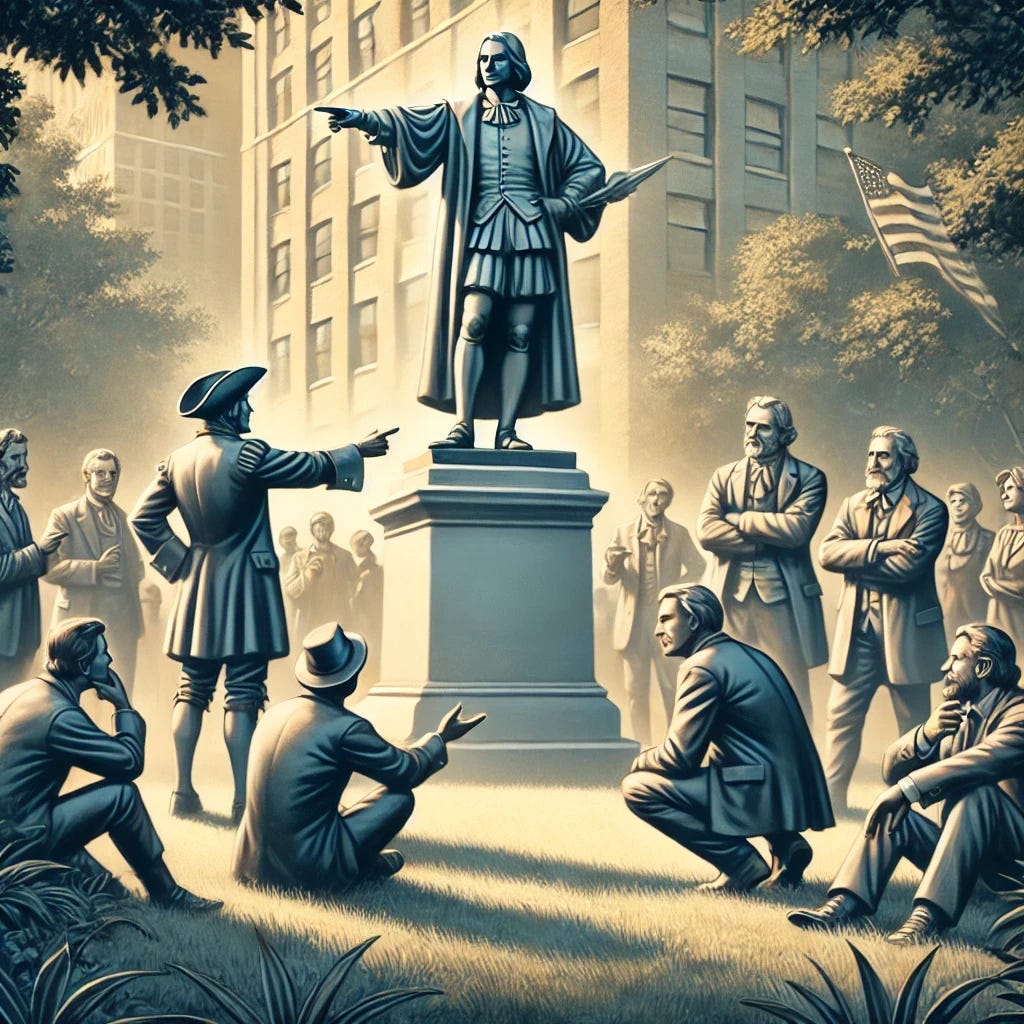PROPOSITION: Eliminating divisive federal holidays and focusing solely on Independence Day would simplify the national calendar while reinforcing shared values.
Federal holidays are meant to unite a nation, serving as shared moments for reflection, celebration, and national pride. Yet many of America’s federal holidays fail to achieve this purpose, instead reflecting divisive or exclusive values that do not resonate with all citizens. Examples like Columbus Day, Christmas, Presidents’ Day, and Labor Day illustrate how federal holidays often cater to specific groups or ideals, fostering controversy rather than unity. By contrast, Independence Day transcends all divisions, celebrating the shared principles of liberty, equality, and democracy that define America. For this reason, Independence Day should be the sole recognized federal holiday, offering a unifying celebration of what it means to be an American. Even Thomas Jefferson, whose Declaration of Independence laid the foundation for the country, would likely support prioritizing this day of collective significance.
The Problem with Divisive Holidays
Columbus Day is one of the most contentious federal holidays. Once celebrated as a day to honor Christopher Columbus’s "discovery" of the Americas, it has become a flashpoint for debates about colonization and its destructive impact on Indigenous peoples. For many Americans, particularly Native Americans and their allies, Columbus represents oppression, exploitation, and the erasure of Indigenous cultures. In recent years, numerous states and cities have replaced Columbus Day with Indigenous Peoples' Day to honor the histories and contributions of Native peoples. This shift highlights the holiday's divisiveness and its failure to unite Americans around shared values.
Christmas, while beloved by many, is a religious holiday tied explicitly to Christianity. As a federal holiday, it prioritizes one faith over others, alienating non-Christians, atheists, and those of other religious traditions. Although some argue that the holiday has become secularized through traditions like gift-giving and family gatherings, its religious origins remain deeply rooted. This exclusivity challenges the idea that federal holidays should represent the entirety of the American population, which is increasingly diverse in religious and cultural practices.
Presidents’ Day is another example of a holiday with limited appeal. Originally intended to honor George Washington and Abraham Lincoln, the day has evolved into a broader celebration of all U.S. presidents. However, not all presidents are universally admired. Figures like Andrew Jackson, associated with the Trail of Tears, and Richard Nixon, tied to the Watergate scandal, evoke strong negative reactions from many Americans. This lack of consensus on what or whom the holiday celebrates diminishes its unifying potential.
Labor Day, though rooted in the commendable goal of recognizing workers' contributions, does not resonate equally with all Americans. Its historical ties to labor union movements may feel irrelevant to those who have no connection to unions or who view unionization with skepticism. Additionally, the day has largely lost its original meaning for many Americans, becoming more associated with the unofficial end of summer than with honoring labor. This disconnection further weakens its value as a unifying federal holiday.
Independence Day: A Holiday for All Americans
In contrast to these divisive holidays, Independence Day represents the ideals that unite all Americans. On July 4, 1776, the Declaration of Independence proclaimed the nation’s commitment to life, liberty, and the pursuit of happiness. These principles transcend individual religions, cultures, and political ideologies, forming the foundation of American identity.
The traditions associated with Independence Day—fireworks, parades, and gatherings—emphasize community and collective pride. Unlike holidays tied to specific groups or events, Independence Day invites all Americans to reflect on their shared freedoms and the sacrifices made to secure them. It is a celebration of the nation as a whole, rather than of any one individual, group, or ideology.
A Streamlined Calendar for a Unified Nation
Eliminating divisive federal holidays and focusing solely on Independence Day would simplify the national calendar while reinforcing shared values. Communities and individuals could still celebrate other significant events and traditions locally or privately, ensuring cultural diversity is respected. However, federal recognition would remain reserved for the one holiday that unites all Americans. This approach would eliminate the controversies surrounding holidays like Columbus Day, Christmas, Presidents’ Day, and Labor Day, while emphasizing the principles that bind the nation together.
Independence Day stands alone as the one federal holiday that embodies the spirit of America. While other holidays celebrate specific figures, groups, or traditions, they often divide more than they unite. By designating Independence Day as the sole federal holiday, the nation would reaffirm its commitment to liberty, equality, and democracy, creating a celebration that all Americans can share. The strength of a nation lies in its ability to focus on what unites its people, rather than on what sets them apart.







